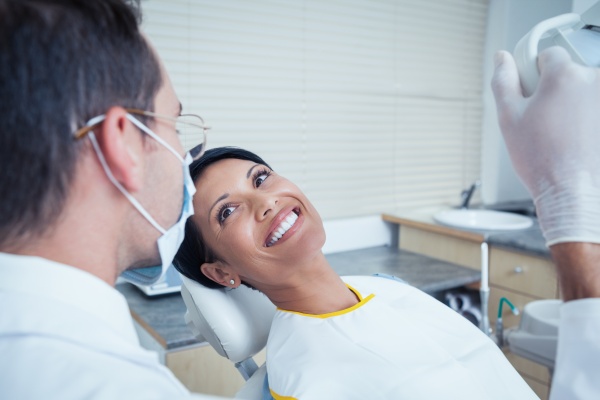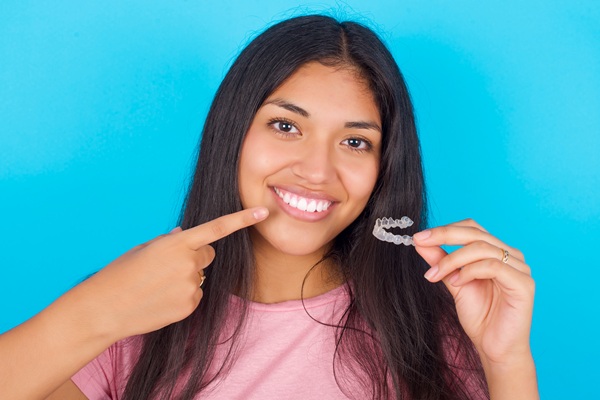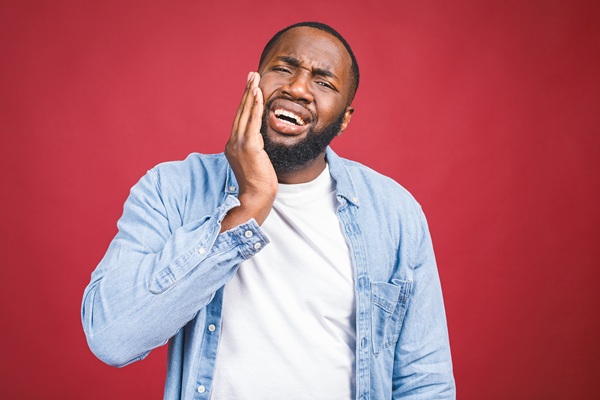An Emergency Dentist Talks About 4 Ways You Can Avoid an Emergency

Do you need an emergency dentist? The best way to deal with a dental emergency is to prevent it from occurring in the first place. Although emergency dentists offer services when urgent dental care is needed, they also strive to help patients prevent emergencies from happening through good oral hygiene, wearing a mouthguard, and avoiding hard and sticky foods.
4 Tips from an emergency dentist on emergency prevention
Everyone should evaluate their daily routine and diet to find ways that they can minimize the risk of damage to teeth from poor oral hygiene or dental trauma. There are several more common ways to avoid a dental emergency, which includes practicing good oral hygiene, protecting teeth properly, and avoiding harmful foods and drinks.
1. Keep teeth healthy with good oral hygiene
One of the main causes of a dental emergency is oral health complications, such as oral infections and severe dental cavities that result in more concerning and painful symptoms. To prevent this, patients should brush their teeth several times a day, floss at least once a day (ideally after each meal), and keep the mouth clean with mouthwash and by drinking water throughout the day. This prevents a build-up of bacteria and food particles that can increase the risk of dental cavities and oral infection.
2. Protect teeth during physical activity
Another reason many visit the emergency dentist is to receive treatment for dental trauma. This occurs when there is a blow to the mouth that results in damage to one or more teeth or the gums. The best way to prevent dental trauma is to take precautions during physical activities such as playing contact sports, lifting weights, and working in outdoor areas (i.e. construction zones). If in a vulnerable situation or area where a blow to the face is possible, then consider wearing a mouthguard or another type of protective gear that reduces the risk of dental trauma.
3. Avoid foods that may cause teeth chips and cracks
Dietary choices play a large role in preventing oral health concerns or dental trauma. To reduce the risk of dental cavities, oral infections, etc., limit the intake of sugar and other carbohydrates. Also, biting down on hard or sticky candies, ice, and other hard foods can damage teeth and even lead to chips and cracks, and being careful while chewing is also essential.
4. Visit the dentist for routine checkup visits
Some cavities that are far back in the mouth are hard to detect without routine checkup visits. Cavities that are not promptly treated can increase the risk of a dental emergency. Subsequently, emergency dentists typically recommend routine checkup visits as a way to minimize the risk of needing emergency treatment to deal with severe tooth pain, sensitivity, and other symptoms of a tooth infection or severe dental cavity.
Looking for an emergency dentist?
If you have a dental emergency and need urgent treatment, then contact our emergency dentist team now for prompt assistance. We take pride in providing quality care to patients who need immediate treatment, and we offer a range of emergency dentistry services.
Are you considering an emergency dentist in the Huntsville area? Get more information at https://www.yourhuntsvilledentist.com.
Check out what others are saying about our services on Yelp: Read our Yelp reviews.
Recent Posts
Orthodontics is a branch of dentistry that focuses on teeth straightening options such as Invisalign®. However, because having straight teeth is so important to oral health, many types of dentists offer orthodontic services, including general dentists. Read on to learn more about the benefits of Invisalign.Like other clear aligners, Invisalign falls under the category of orthodontic…
Knowing when you need an emergency dentist can help save teeth, preserve oral health, and prevent serious complications. From sudden tooth pain to dental trauma, understanding the signs that require immediate attention helps ensure timely and effective care. Learning more about the role of an emergency dentist can prepare patients to act quickly in critical…
Severe tooth decay or damage is often treatable through root canal therapy. Despite its reputation, undergoing a root canal is similar to filling a cavity and is generally no more uncomfortable. Learning about the procedure and the recovery process can help alleviate concerns, helping patients see the benefits of preserving their smile with a root…
Choosing the right kids' dentist is one of the most important decisions you will make for your child's oral and overall health. This dental professional specializes in providing dental care tailored to the unique needs of young patients, fostering a positive experience with dental care from a young age. Working with an experienced pediatric dentist…


